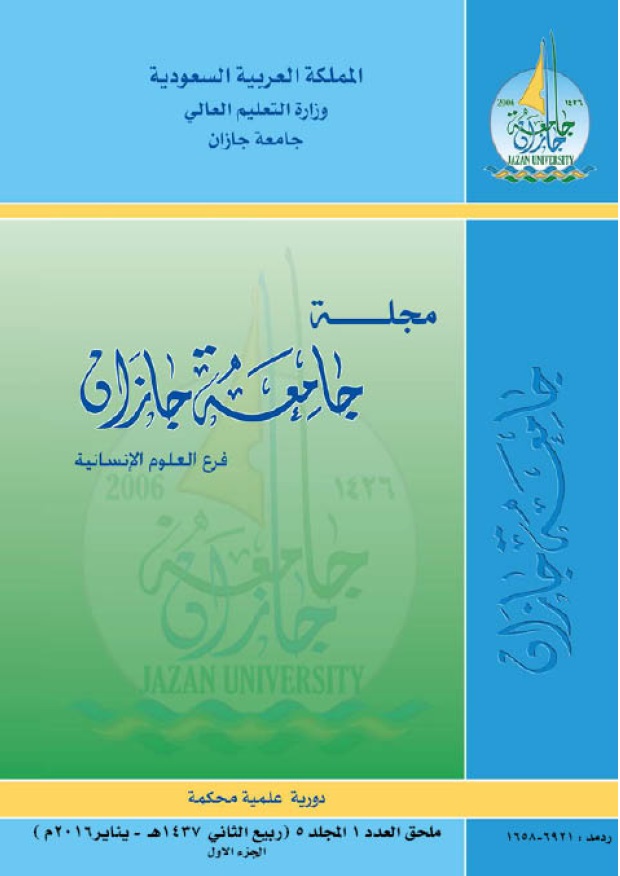The Attitudes of the Secondary Students in the Region of Hail towards Contemporary Educational Concepts
Keywords:
The Word (Listen to Us), The Frequently Repeated Requests, The Asking of Mutual Conferences, The Raising of The Voice, The Rushing Forward in The Presence of Allah and His Prophet, The Politeness of The Believers, The Belief in Apostles, Al-Maida Chapter (Table Spread with Food), The Chapter (Of That Who Disputes)Abstract
Praise be to Allah, peace and blessings be upon the last prophet. Prophet Muahmmad has been given rights to be reserved by his community for guiding them to the right path of their God. These rights are abstract, concrete and ethical. The prophet's contemporaries (Sahaba, his companions) had observed them, and so should those who have not witnessed him in his life. This research manifests a part of those rights entitled to the Prophet enjoined earlier on his community (the Sahaba) or later on following community who have followed their footsteps regarding how to address the Prophet. The researcher tries his best to derive evidences from the chapters of the Quran that bear witness to the way of addressing the prophet in the manner, features, and implications in different walks of life. It is also a serious attempt to accomplish an objective Quranic study in which the techniques and schemes of an objective interpretation are employed in tackling the Quranic subject matter After having finished with this brief study of that portion, various aspects have appeared to the researcher, namely the great effect of the Quran on the emotions of the venerated Sahaba (companions of the prophet) who were told by the Quranic context to adopt the polite manner when behaving universally with the prophet. Another aspect is that of the polite etiquette conducted in particular on addressing the prophet, and how they hastened to wholly comply with the Quranic instructions..
Downloads
Downloads
-
PDF (Arabic)
60
36
Published
Issue
Section
License
Copyright (c) 2016 CC Attribution 4.0

This work is licensed under a Creative Commons Attribution 4.0 International License.





